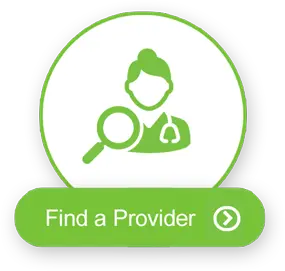
This event was started to promote awareness about suicide loss and provide a day of healing and support. But it can also create awareness about the suicide epidemic more broadly and how you can help others, or perhaps even yourself, talk about mental health issues without increasing the risk of harm.
And it starts by being able to discuss your depression—and get the help you need. Below, individuals who have suffered from depression discuss the best advice they received from friends and loved ones, as well as the lessons they personally learned, that allowed them to better cope, get help, and, ultimately, recover.
“Depression is a medical condition, not a personal failing, and nothing to be ashamed of. See a doctor! And keep working with the doctor until you find the right treatment for you. It usually takes several tries, over months to find the right one. That is normal and that is okay.”
-Tisha, Texas
“My husband told me, ‘You are not your disease.’ When I felt really low, I kept repeating it to myself. Because my depression does not have to define me. I won’t let it.”
-Meggan, North Carolina
“You have to remember that depression lies. It will tell you that you are worthless and helpless and that no one cares. It is absolutely not true. You absolutely matter.”
-Robert, New York
“Seek help. Depression isn’t about willpower or positive thinking. You can’t fix it yourself any more than you can fix other illnesses.”
-Alisa, San Francisco

-Tony, Iowa
“Try therapy and keep going, even when it doesn’t look like its helping. Take the medicine you’ve been prescribed, even when you feel better (unless the doctor says you don’t need it). Talk. Be sad with me. Don’t put on a show just for me.”
-Laura, Maryland
“Take the medicine. Make the lifestyle changes. Get exercise. Stay close to the friends that support you.”
-Donald, Texas
“Don’t wait for it to go away. It likely won’t. There is nothing wrong with taking medication for depression. It could change your life!”
-Leah, New Jersey
“Get up and treat yourself as someone worthy of love and care everyday, whether you feet like it or not. Wanting to do it had nothing to do with it. Doing it helps.”
-Heather, Pennsylvania
Depression can be a wily foe. But there is no need to suffer in silence. Depression affects more than 15 million Americans. So don’t be afraid to talk about your feelings. Listen to those who have been through and come out the other side—and know there is hope. Go out and find the help you need. And do the work to move towards recovery, even when it seems too hard. You, and those you hold dear, will be glad you did.
The information on this website is provided as a general information resource only, and is not a substitute for professional medical advice, diagnosis, or treatment from a qualified healthcare provider. Always seek the advice of your physician or qualified healthcare provider with any questions you may have regarding a medical condition. The information on this website is provided “as is”. Assurex Health makes no representations or warranties, express or implied, regarding the information on this website.
Our articles are for informational purposes only and are reviewed by our Medical Information team, which includes PharmDs, MDs, and PhDs. Do not make any changes to your current medications or dosing without consulting your healthcare provider.
The GeneSight test must be ordered by and used only in consultation with a healthcare provider who can prescribe medications. As with all genetic tests, the GeneSight test results have limitations and do not constitute medical advice. The test results are designed to be just one part of a larger, complete patient assessment, which would include proper diagnosis and consideration of your medical history, other medications you may be taking, your family history, and other factors.
If you are a healthcare provider and interested in learning more about the GeneSight test, please contact us at 855.891.9415. If you are a patient, please talk with your doctor to see if the GeneSight test may be helpful.





